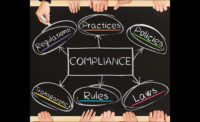What makes it even more ironic is that many IHs have first-hand experience with this hazard. A recent survey by this magazine found that nearly one in every two IHs claim they are exposed it.
If you haven't guessed by now, I'm talking about work-related psychological stress. I believe almost every IH will agree that job stress is an occupational health hazard. Then why do I get the feeling that most IHs don't want to deal with it?
I've heard many excuses for not getting involved with recognizing and controlling job stress:
It's a human relations issue-leave it to the HR manager.
Violent employee? Bring in the security manager.
General job stress concerns? This is a job for an employee's supervisor, or maybe a safety professional or an occupational nurse-anybody but the IH.
The same excuses arose when workplace ergonomic hazards became well-known. Most IHs felt ergonomics should be addressed by other professions, such as safety, even though most ergonomic problems cause illness (health) not an injury (safety).
The same also held true when OSHA issued the bloodborne pathogens standard. I felt IHs should have been in the forefront of dealing with this occupational hazard. Many of my fellow IHs felt otherwise.
All this is borne out in the editorial content of the American Industrial Hygiene Association's journal. How many articles do you think you'll find on ergonomics, bloodborne pathogens, or job stress? It's a very short list.
At the last American Industrial Hygiene Conference, Morton Corn, a long-time leader in the industrial hygiene profession, declared that we need a paradigm shift to bring about more effective research and professional practice. Corn advocated that professionals expand their traditional emphasis on agent/exposure characteristics to include behavior/management/control innovation.
While IHs are more comfortable with the concept of exposure to toxic chemicals and harmful physical agents, the concept that exposure to stressful psychological situations can be "toxic" and cause illness is not that farfetched. I believe Corn is right. If the IH profession is to make gains in the coming years, IHs must adapt to dealing with emerging issues, even though they may be non-traditional occupational health hazards.
Industrial hygiene is the premier profession that deals with occupational health hazards. We are more than just technical or engineering types. If job stress is an occupational health hazard that requires behavior/management/ control innovation, then we must be up to that task. It's time to learn more about controlling job stress. Then find out who's dealing with job stress issues at your workplace and volunteer your services.
The basics: The rest of this article offers some basic background on the issue. To begin with, psychological stress is a complicated subject. It is the tension experienced by individuals facing extraordinary demands, constraints, or opportunities. The pressure can be compounded by conditions where failure to meet demands has important (perceived) consequences. The body responds with a type of adrenalin rush.
Job stress simply means the condition was caused or aggravated by workplace factor(s) that may include:
- Inadequate time to complete a job to one's satisfaction;
- Lack of clear job description or chain of command;
- Lack of recognition or reward for good job performance;
- Prejudice and bigotry due to age, sex, race, or religion;
- Poor work conditions; and
- The FUD factor-fear, uncertainty and doubt.
The damage done
There are three main categories of job stress:1. A physical-mental job stress occurs when a physical injury/illness results in a mental effect, such as a phobic fear of cancer after a cancer-causing chemical is splashed on the skin.
2. Mental-physical job stress happens if mental stress results in a physical injury/illness, such as when constant deadline pressures, coupled with overwork, culminate in a heart attack.
3. Mental-mental job stress occurs when mental stress causes mental problems. An example would be sexual harassment that leads an office worker to have anxiety attacks.
It's not all in the mind-job stress can lead to real health problems, including cardiovascular diseases, backache, headache, and insomnia. More importantly, however, may be the changes in behavior and attitude that job stress causes, such as alcohol and drug abuse, anger and violence. Remember, homicide-the second-leading cause of workplace deaths-is linked to job stress in many cases.
NIOSH has these recommendations for job stress:1) Design jobs to improve working conditions; 2) Watch for psychological disorders and risk factors; 3) Provide workers with information on dealing with stress; and, 4) Provide mental health-related services for employees.
